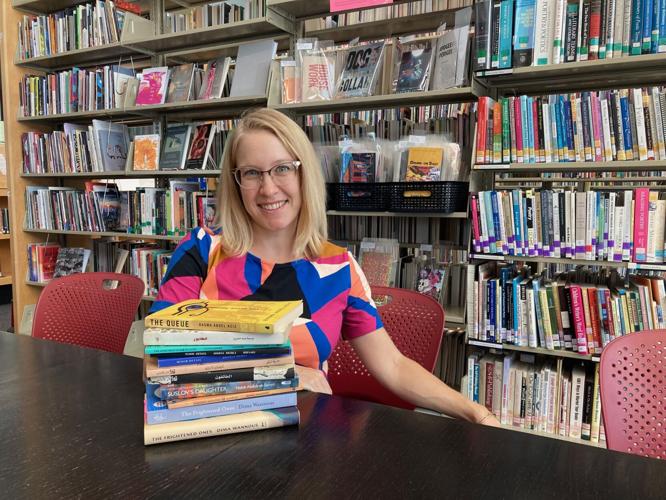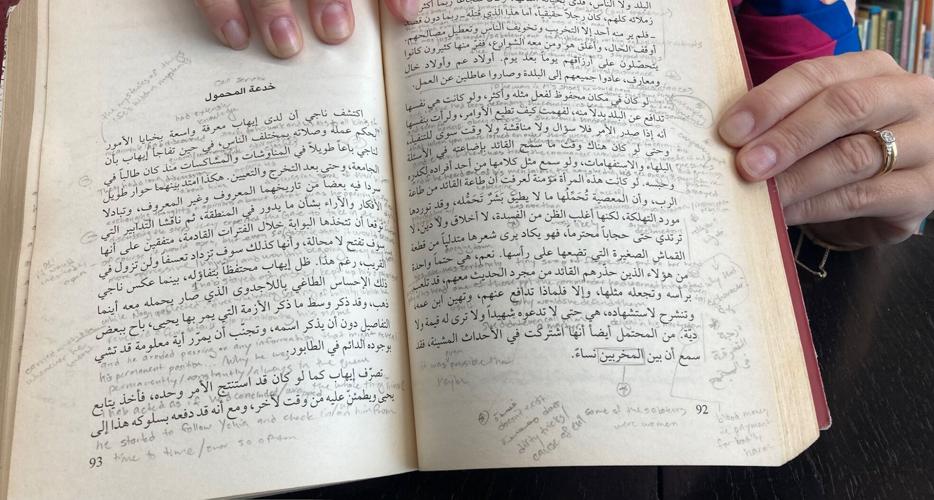It has been 20 years since Bill Murray found himself searching for the right words in the Hollywood hit, “Lost in Translation,” and Elisabeth Jaquette remembers the movie well. She liked it, too, but the title still gives her chills.
“I like ‘Found in Translation,’” Jaquette said, and for good reason. She is the executive director of the American Literary Translators Association and she works every day to help audiences discover books and authors not previously known in the U.S.
Indeed, “Found in Translation” could be the subtitle of ALTA’s national conference Nov. 8-11 in Tucson at the Marriott University Park Hotel.
“What I do, what we all do, is help American readers find and enjoy literature from all over the world,” she said. “Only about 20% of all books published are written in English. There’s a whole world of books out there waiting to be discovered.”
Jaquette has called Tucson her home since 2018, when ALTA moved from Dallas to the College of Humanities at the University of Arizona.
It did not take her long to become headline news. In 2020, her translation of “Minor Detail” by Palestinian author Adania Shibli was a finalist for the National Book Award in Translated Literature.
Jaquette’s translations of “Thirteen Months of Sunrise” by Rania Mamoun from Sudan and “The Queue” by Basma Abdel Aziz of Egypt also received international honors. She is now well-known in literary circles throughout the Middle East.
The power of translated literature is undeniable. The Bible and Quran are translations. So, too, are “The Illiad” and “Don Quixote.” Many of the nursery rhymes we read as children, including “Little Red Riding Hood” and “Hansel and Gretel,” were first published in German.
Still, modern translators work largely behind the scenes. Case in point: Jaquette’s name appears on the cover of only one of the books mentioned, “Thirteen Months of Sunrise.” This does not seem to concern her one whit.
“To me, translation is a creative, artistic form in the way writing is,” Jaquette said. “More than anything, though, I just think it’s important work that I do. These people need to be heard, and I’m helping them find new listeners.”
Jaquette’s speciality is Arabic, a language she learned while teaching English in an international school in Cairo.
“I guess I wanted to see the world out of college,” she recalled. “I applied for teaching jobs all over: Japan, Korea, Turkey … The job in Cairo sounded like the best opportunity. They wanted me to teach English and social studies, and that’s what I was really interested in.”
Once in Egypt, Jaquette realized it might be a good idea to speak Arabic. Soon, she was reading Arabic books and joining bilingual book clubs.
“It took me five or six years, but eventually I thought I might know the language well enough— and the culture well enough — to do a decent job of translating,” Jaquette said. “I was doing an internship at the American University when I first read Basma’s book, ‘The Queue.’ It was like Arab Spring meets ‘1984,’ and I thought it was incredible.
“Well, one of my professors worked at the publishing house that published the book in Arabic, so … ”
Introductions were made, friendships were formed, and Jaquette’s English translation of “The Queue” was released in 2016.
It is hard to overestimate the importance of the translator in the ecosystem of modern literature. It is common for Jaquette and others to read a novel in another language, gauge its importance, and then pitch that author to American publishers.
If successful, the translator’s real work begins. The task is far more complex than translating words, Jaquette explained.
“You want to get the words to do the same thing to an English reader that the original words did to an Arabic reader,” she said. “The cultural nuances may be completely different, but you have to get the reader to the same place … mentally, emotionally, physically. It’s hard.”
It is not uncommon for a translator to edit every sentence of the book. Jaquette points to a line by Daniel Hahn, who translates from Spanish and Portuguese.
“Danny said, ‘My task in translating a book is to keep everything exactly the same, even if it means rewriting every word.’ That captures it perfectly,” she said.
Formed in 1978, ALTA promotes translations and supports translators whose end products will be published in English, in America.
The upcoming conference, ALTA’s first in-person gathering since the pandemic and its first ever in Tucson, will welcome some 400 participants.
“We can’t wait to introduce everyone to Tucson,” Jaquette said. “This really is a wonderful place for what we do. Not only is literature important here, but there is a richness of language and culture you just don’t find everywhere. The Community Foundation did a study that said 47% of all Tucson households speak languages other than English. That’s pretty powerful.”
Among the highlights at the November conference will be the 25th presentation of ALTA’S National Translation Award — 350 books were nominated, in 19 languages and from 19 publishers.
“The fun part of ALTA is that all of us do the same thing, but everyone has taken a different path to get here,” Jaquette noted. “Nobody grows up wanting to be a literary translator, yet here we all are. We’re very excited to see each other again.”
That translates pretty well, no matter what language you speak.
FOOTNOTES
Friends and colleagues of Aurelie Sheehan will celebrate her life Oct. 14 at 11 a.m. at St. Michael’s Church, 602 N. Wilmot Road. The author and longtime educator had chaired the Department of English at the University of Arizona. She died Aug. 4 at the age of 60.
The Tucson Tome Gnome will be hiding copies of an ALTA author’s book on Oct. 22. Visit instagram.com/tucsontomegnome for hints on where to find the books.
The UA Poetry Center will welcome ALTA members by co-sponsoring a program featuring poet Sawako Nakayasu on Nov. 9. For more information, visit tucne.ws/nakayasu.
An Egyptian designer has been working on a prototype pair of eyeglasses to help the hearing impaired that translates sign language. Buzz60’s Mercer Morrison has the story.





